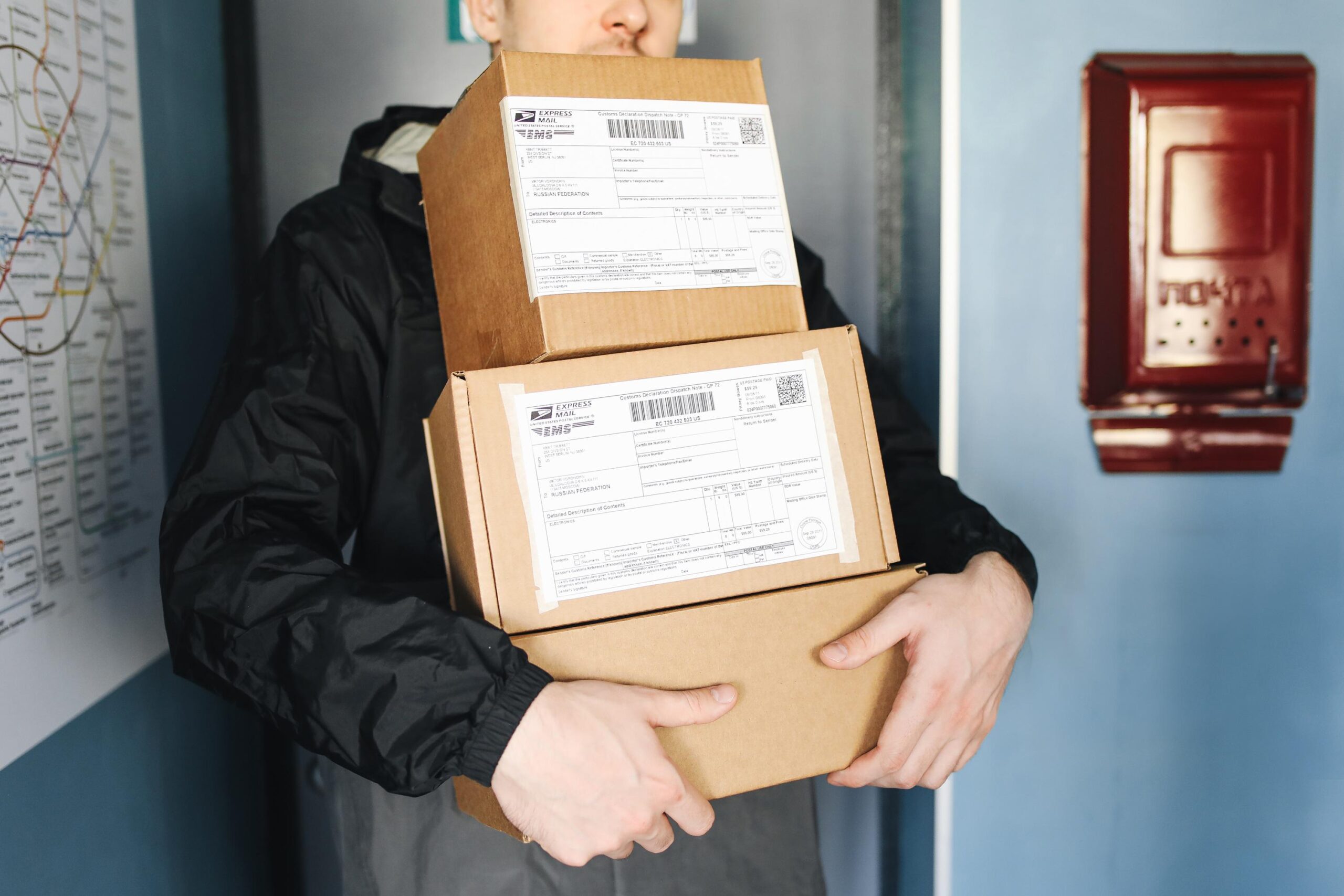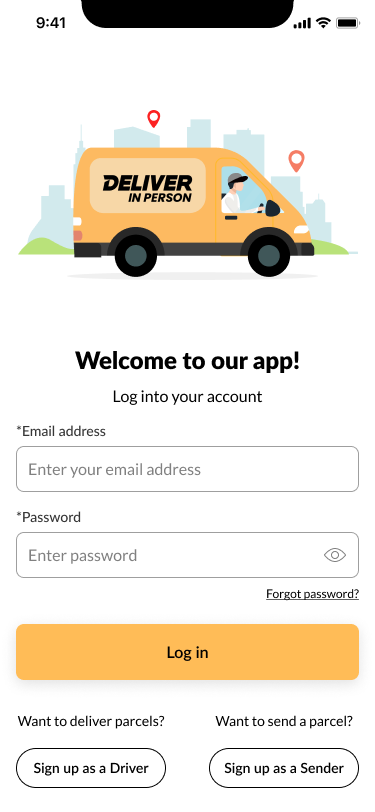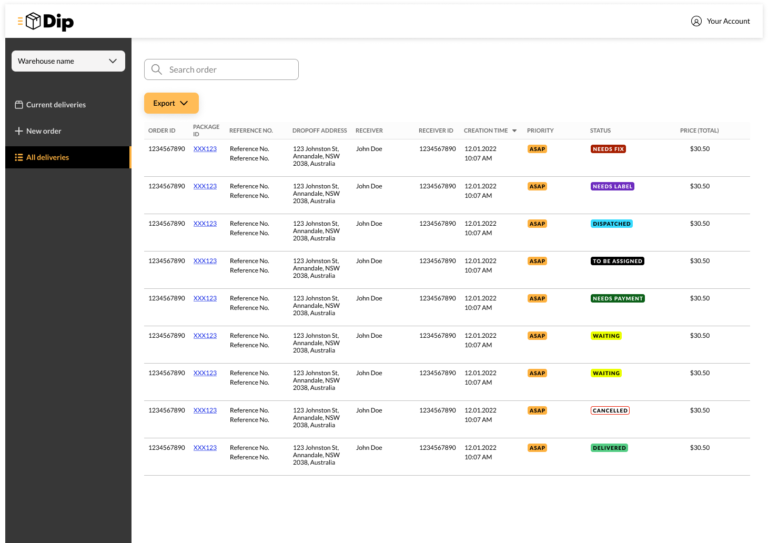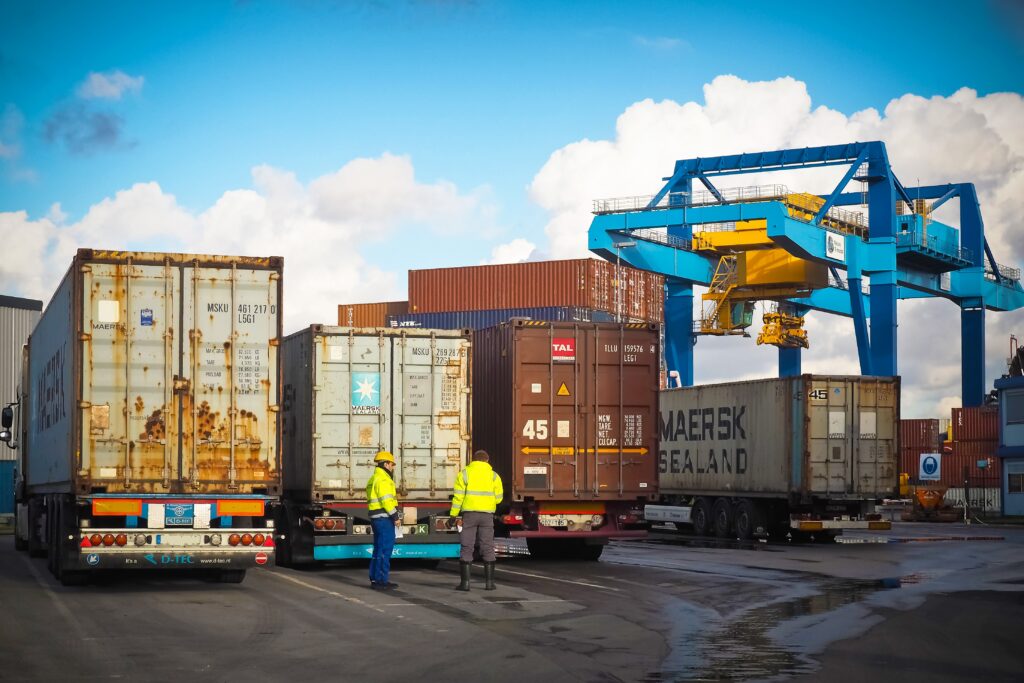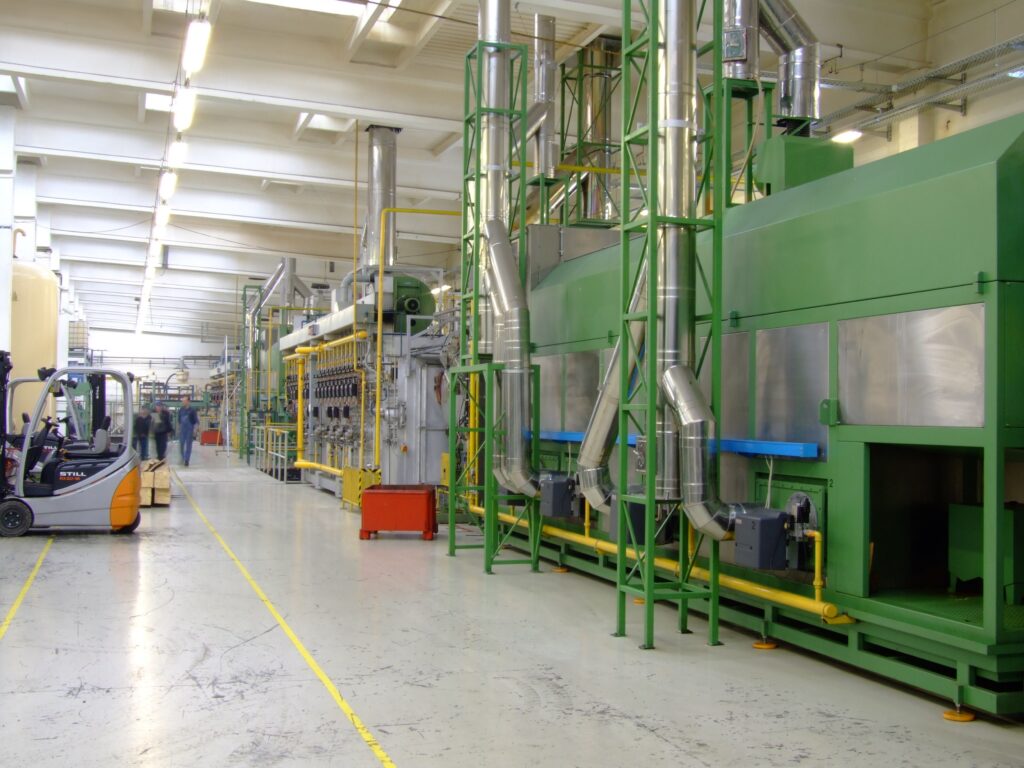Solution
As the main challenge was to work with a large amount of data and data streams in real time we solved the issue with fast-changing big data using machine learning and AI algorithms. To support long-term transactions, we chose Google Firestore.
For store owners, the platform is presented as a web application, for couriers it is a mobile version, since they are always on the go and must be mobile. The client leaves an application, fills in the pick up and drop off addresses, the size and quantity of parcels (up to 100x90x50 cm and up to 25 kg of weight) indicate specific data for the box if any and the system selects the most suitable carrier.
The price is automatically calculated (at the moment there is only 1 price and a discount), the user sees the delivery status and gets a tracking number to follow it online.
Serving bigger customers was resolved by architecture allowing for further system expansion so that the system will withstand any load that potentially appears in the future. As well any external component is thoroughly planned and tested before it will be used within the system in order to avoid potential issues.
In order to minimize the issue of lack of drivers or lack of parcels, additional methods are utilized. Based on historical data, gig economy drivers receive information about potential increases in the number of parcels created by customers.
In the first version of the solution, it works only in Sydney, in the next iteration, Melbourne, Brisbane and New Zealand are planned. Moreover, the goal is to reduce the delivery time to 3 hours.

